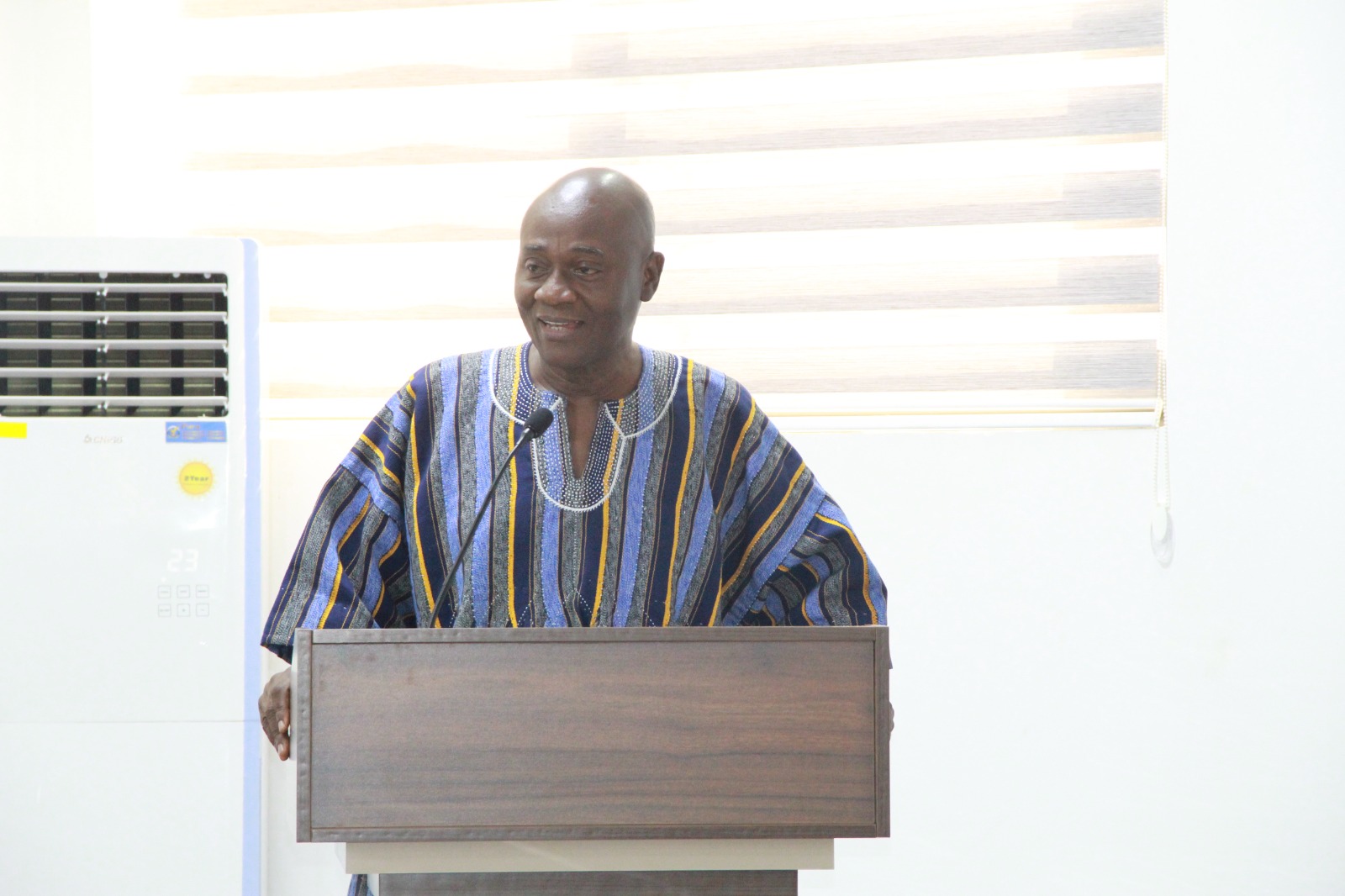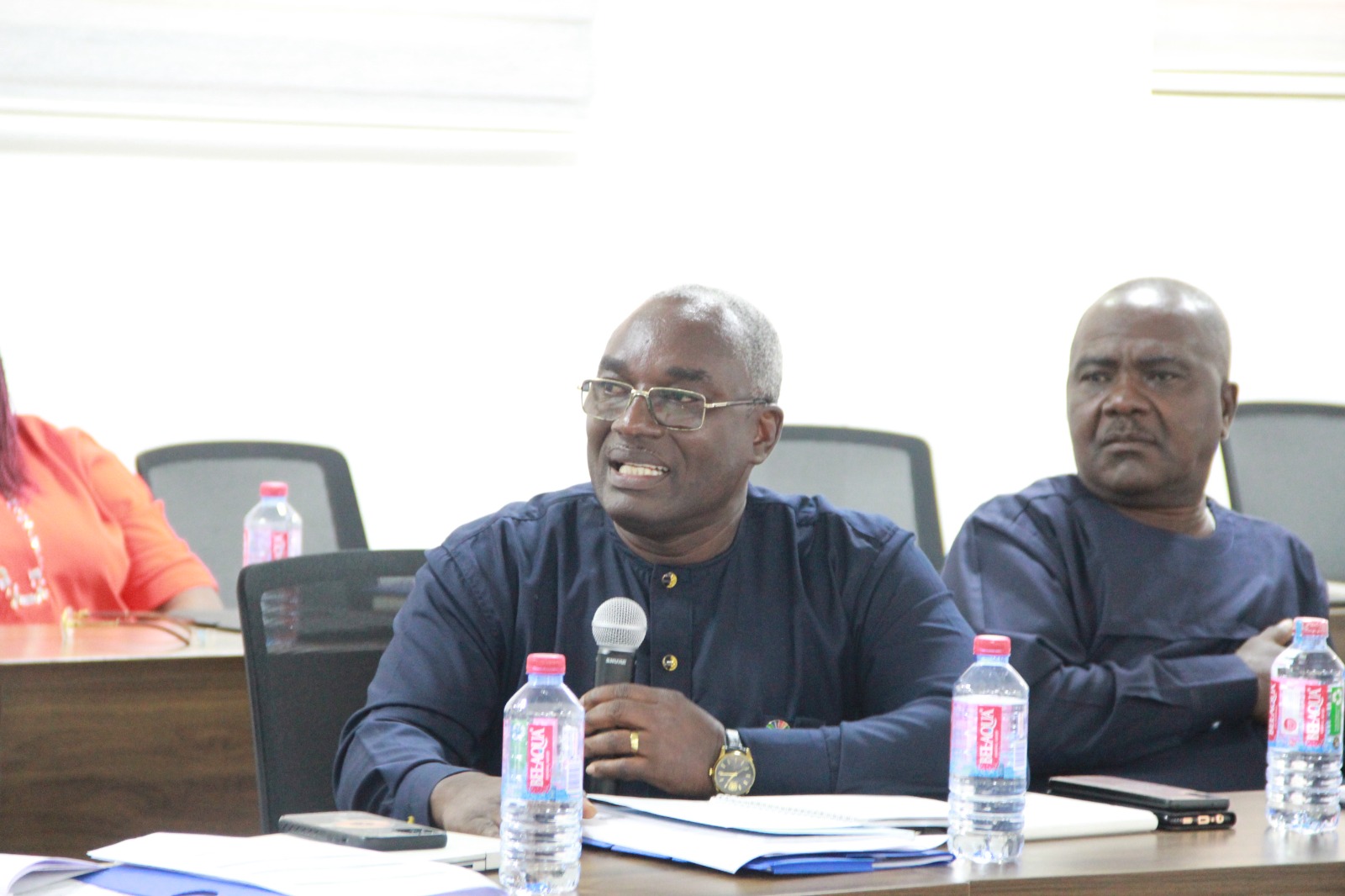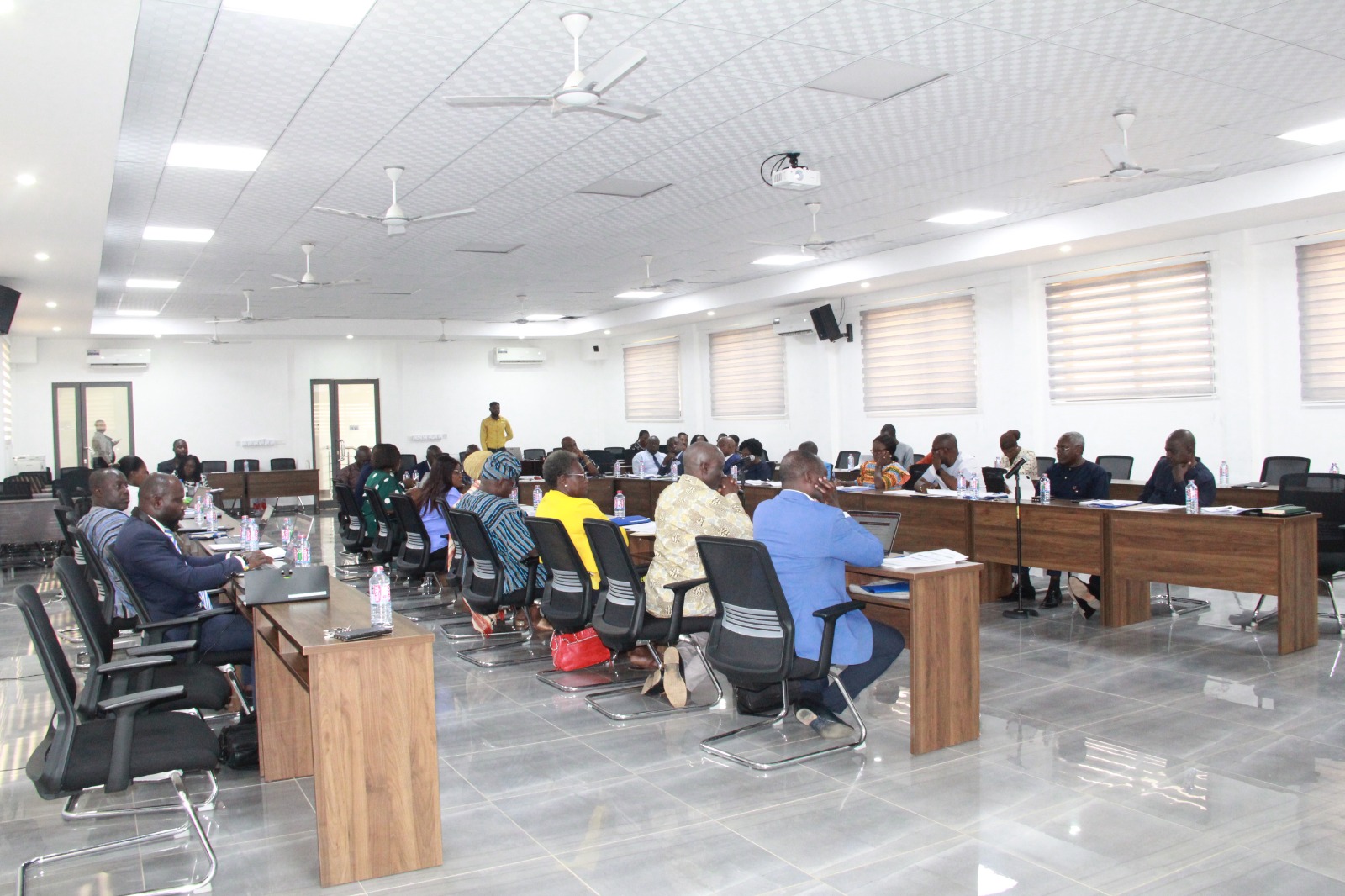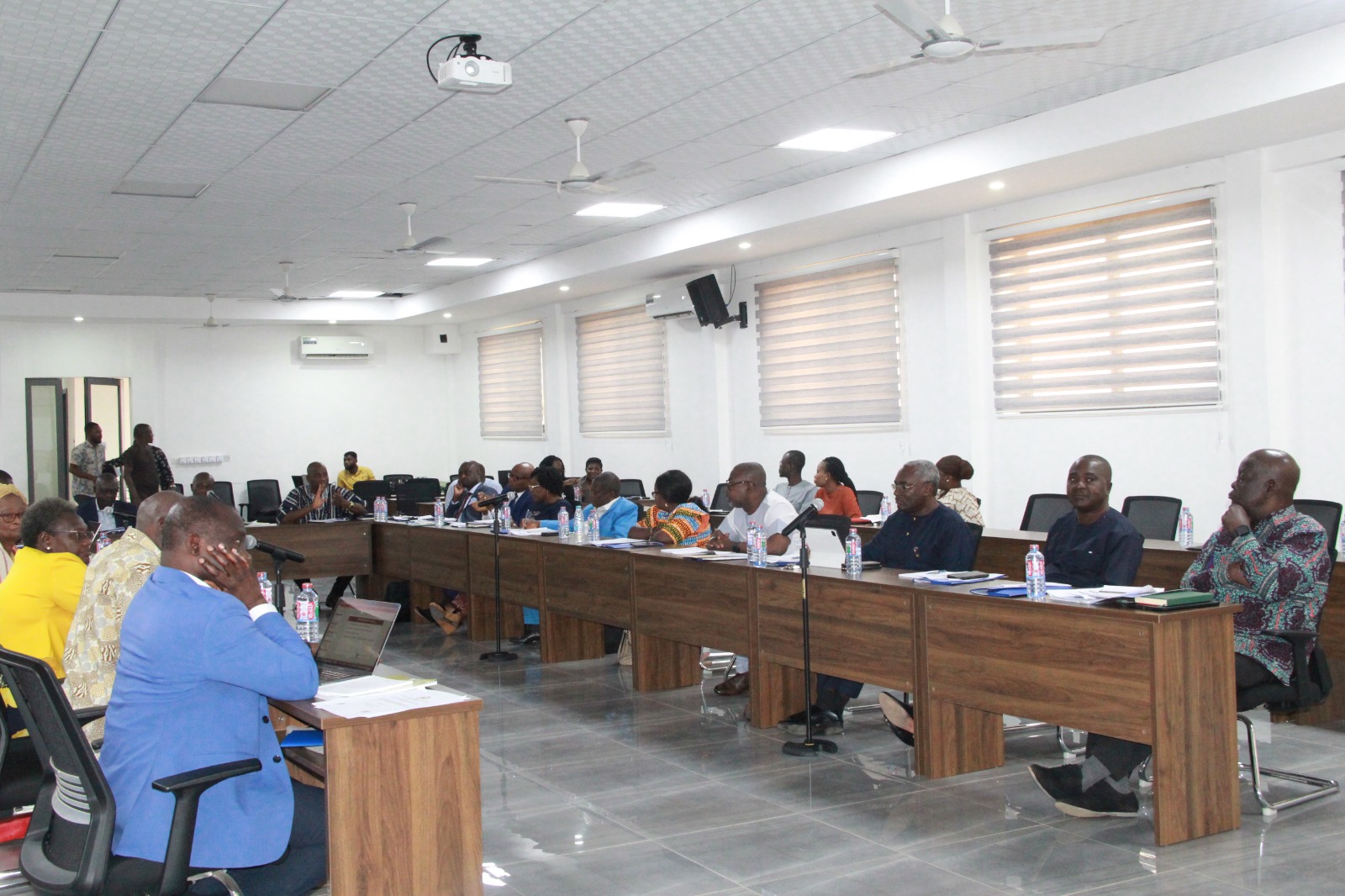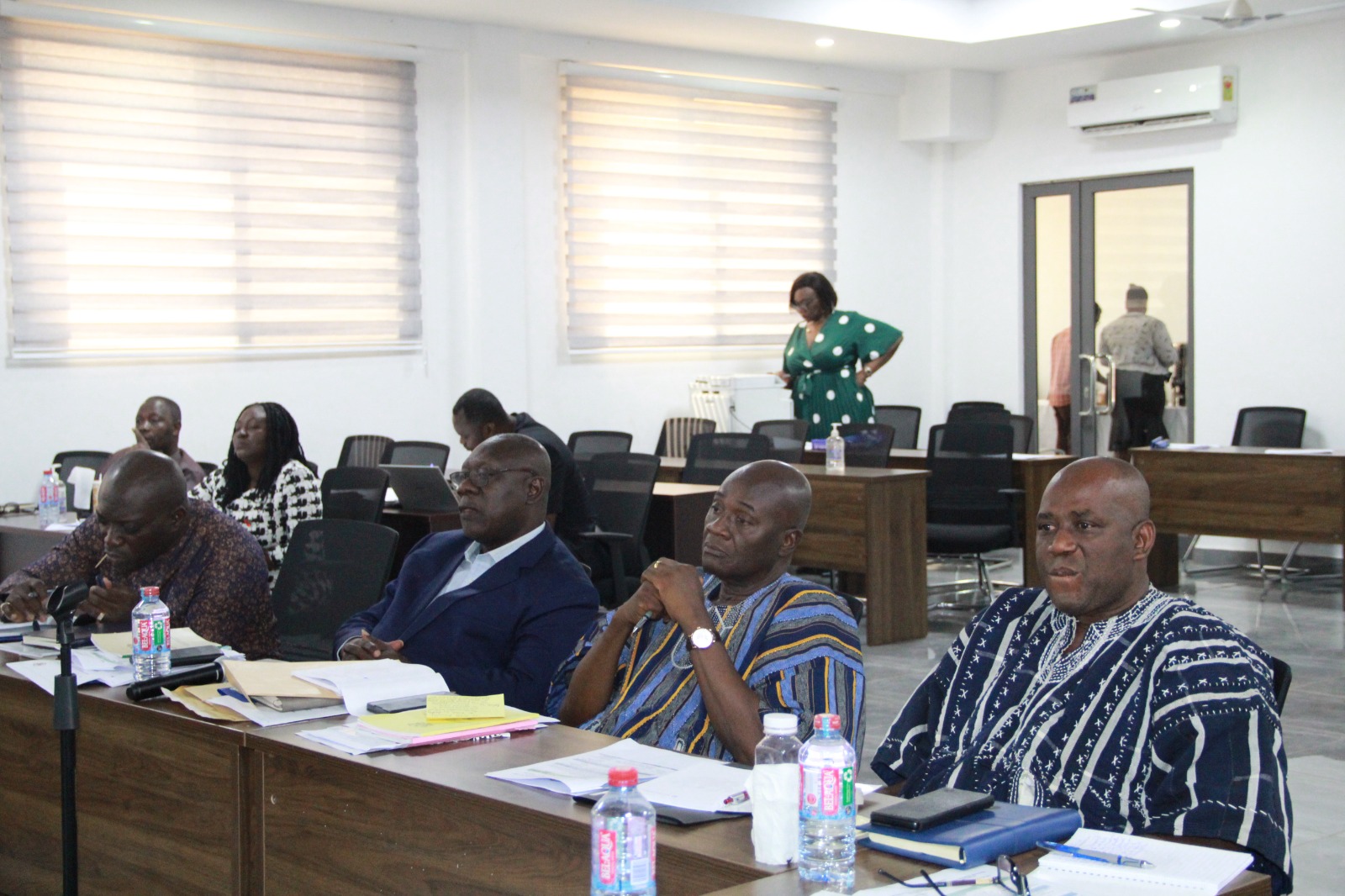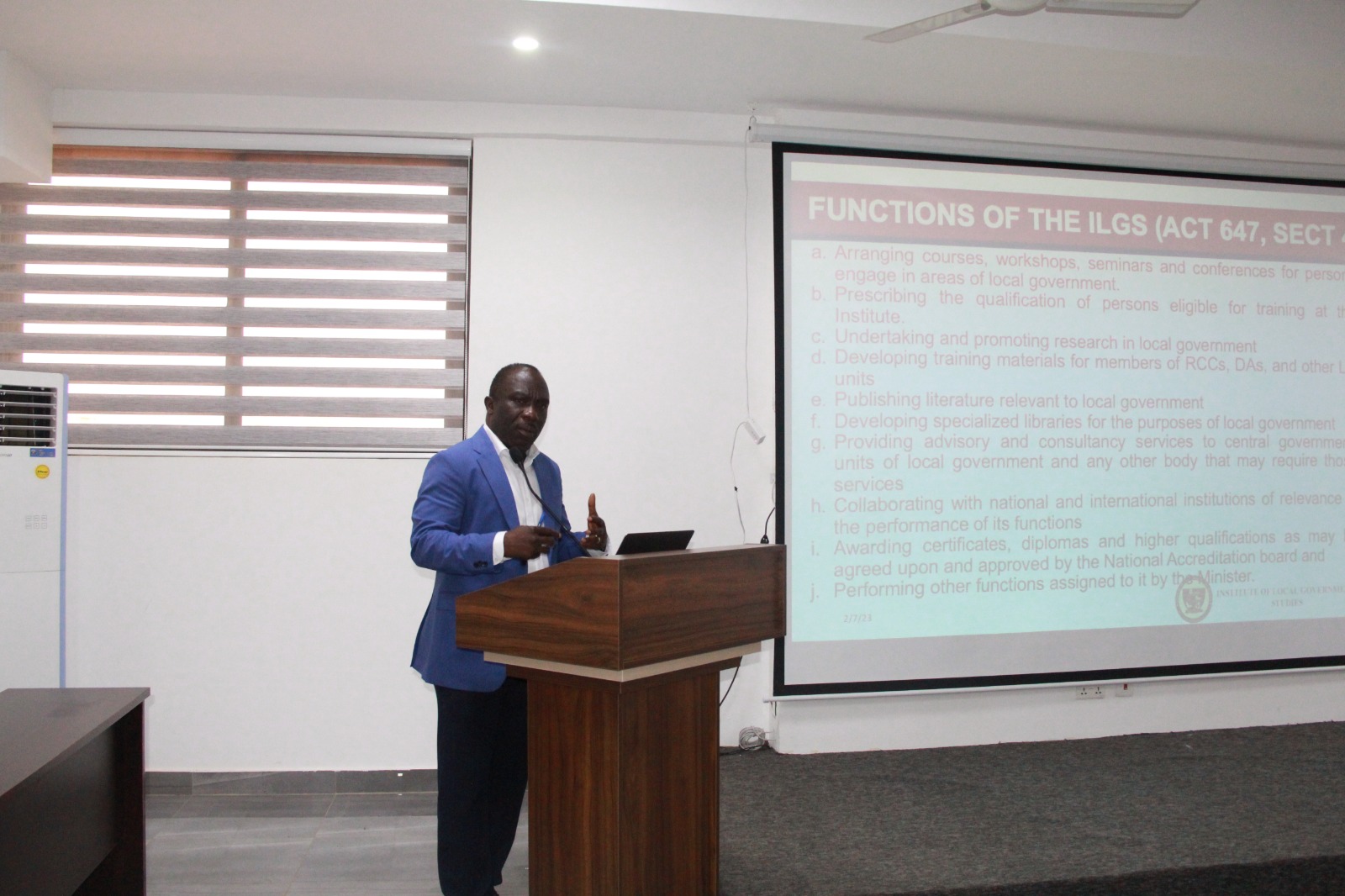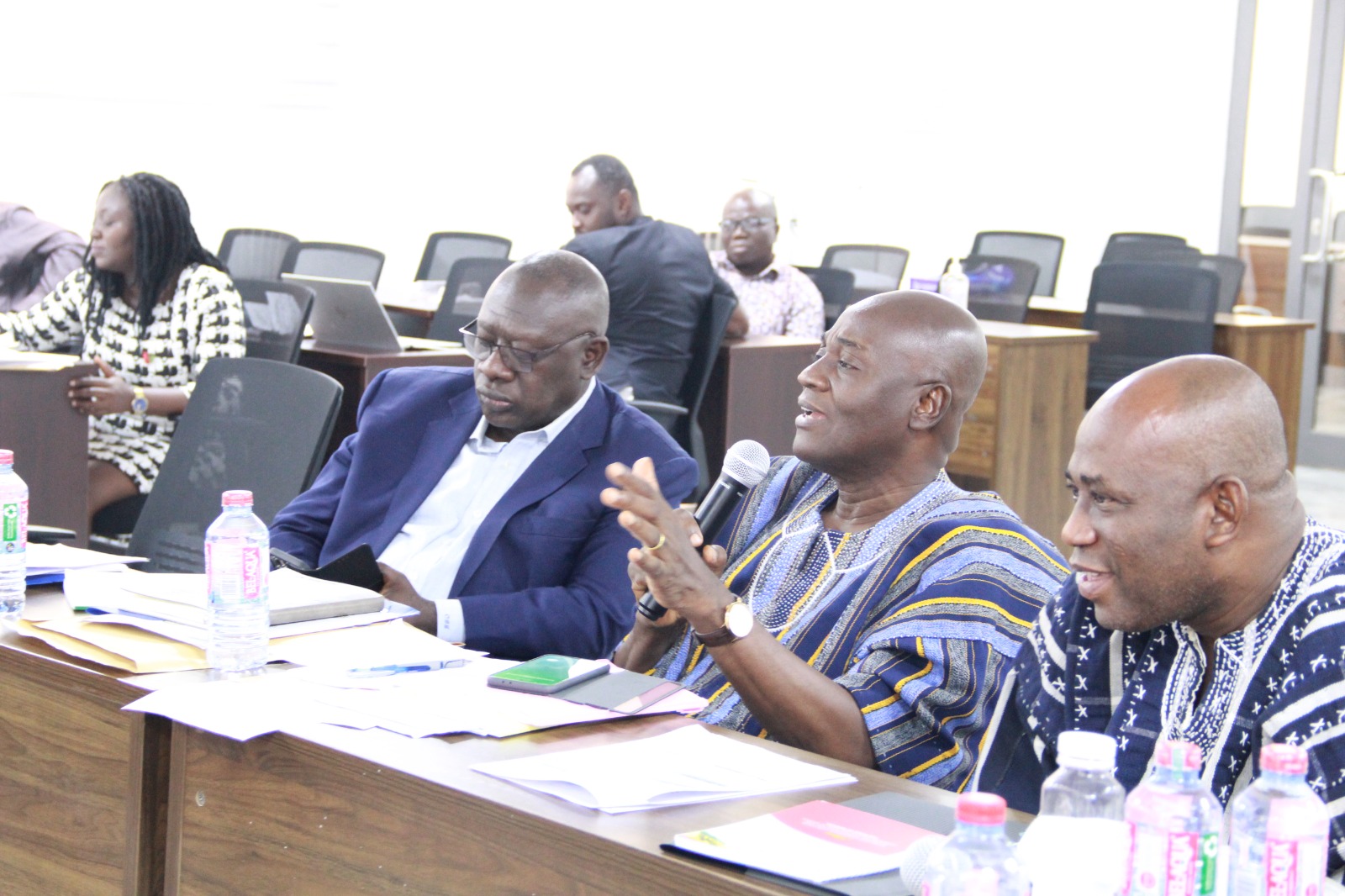The Councils of the Local Government Service (LGS) and the Institute of Local Government Studies (ILGS) have met to assess the state of the human resource management functions and capacity-building arrangements in the local government sector and to chart a way forward to ensure coherence, consistency and in a sustained manner effective local government administration in the country.
This is because in 2003, both the ILGS and the LGS were established to address the capacity deficiencies of the human resource of the Local Government system.
The Local Governance Act 2016 (Act 936) among others, provides technical assistance and direction to District Assemblies to enable them to effectively perform their functions and discharge their duties, conduct organisational and job analysis for the District Assemblies.
The Institute of the Local Government Service Act 2003 (Act 647) on the other hand provides the framework and the guidelines in the organisation for the training of both staff and members of LGS to enhance their managerial, administrative, financial, and operational efficiency.
The relevant laws for both the ILGS and the LGS make the sector Minister responsible for providing policy direction and coherence in the performance of the mandate of the respective Councils.
Specifically, section 232 (2) of the Local Governance Act 936 provides that the Local Government Minister may on the advice of the Local Government Service Council given in consultation with the Public Service Commission make Regulations of institutional cooperation between the Local Government Service and other branches of the public service and a matter that falls within the scope of the functions of the Local Government Service.
HONOURABLE DANIEL BOTWE
Opening a two-day joint Councils meeting of the Local Government Service (LGS) and the Institute of Local Government Studies on human resource management and capacity-building responsibilities for effective local governance in Accra, the Minister for Local Government, Decentralisation and Rural Development, Hon. Daniel Botwe emphasized that Chapter six of the 1992 Constitution interprets an even and balanced development of all regions, thus the development of Act 936 mandating the District Assemblies to achieve this.
He opined that there must be results from local government staff to meet the aspiration of the people, saying the legal instrument of the Local Government act provides a better collaboration between the ILGS and the LGS.
He called for periodic training to build the capacity of Metropolitan, Municipal, and District Assemblies (MMDAs) staff to enable them to deliver on their mandate.
Hon. Botwe cited Section 48 of the Local Government Act 936 which called for the protection of marginalised groups under social protection. He, therefore, urged District Assembly staff to be sensitive to vulnerable groups in their jurisdiction and ensure the Departments of Social Development works to make life easy for them.
He noted that the Local Government Act talks about the bottom-up approach of where policies and activities of the District Assemblies should be reflected on the people at the local level. He called for the Ministry’s involvement in the activities of both Councils through engagement for efficient delivery. He also called for collaboration between the Service and the Ministry.
Hon. Botwe touched on the monitoring and evaluation roles of the Regional Coordinating Councils (RCCs) at the regional level, urging the RCCs to ensure the right use of resources, especially project funds. He noted that this function if done well would reduce audit infractions.
He called for collaboration among ILGS, LGS, and the Land Use and Spatial Planning Authority (LUSPA) to address and minimise the numerous challenges facing communities at the local level.
The sector Minister directed all MMDAs to have a data room for spatial planning per the LUSPA Act 2016 (Act 925) for effective and efficient delivery of land use and spatial planning and the discussion he said should start between the two Councils.
LGS COUNCIL CHAIR
The Chairman of the Local Government Council, Dr. David W. Essaw in a remark said the Council is championing the local government agenda in Ghana from a different perspective. He assured that all human resource gaps that needed urgent attention would also be addressed.
He suggested standardisation of recruitment of local government staff and was hopeful that deliberations by the two Councils would bring the needed results
ILGS COUNCIL CHAIR
Prof. Emeritus Kwasi Kwafo Adarkwa, Chair of the Institute of the Local Government Studies was appreciative of the joint meeting which he described as very crucial, he said the roles and duties of the two Councils would help them perform better.
PRESENTATIONS
There were presentations from the Head of the Local Government Service, Dr. Ing. Nana Ato Arthur; the Director of the ILGS, Dr. Nicholas Awortwi and Madam Mariam W. A. Kpakaph, Chief Director of the Ministry of Local Government, Decentralisation and Rural Development.
Source: PUBLIC RELATIONS UNIT (MLGDRD)

